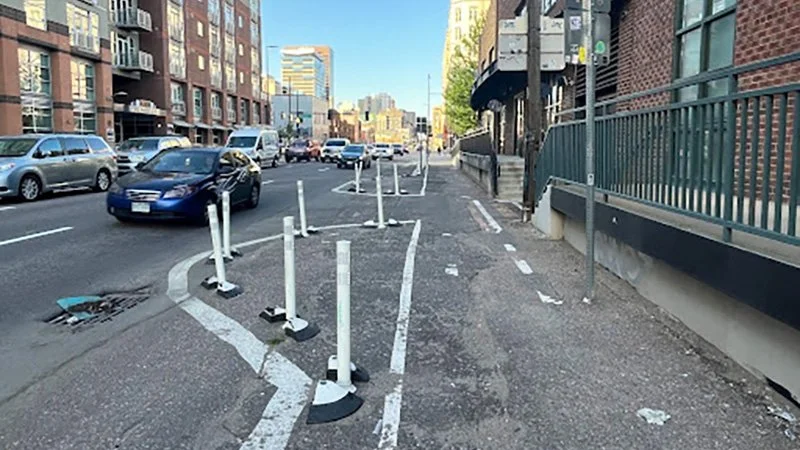When discussing redevelopment, street design isn’t what most people think of. Since North American streets are often built to completion, this kind of incremental approach seems alien. But it’s exactly what cities need to improve their economic, social and environmental conditions.
Read MoreCar-sharing gives people the perks of a private vehicle without the hassles of owning one, but that's just the tip of the iceberg. Here's how urbanists can use this car-rental model to strengthen their communities.
Read MoreWhen fighting the housing crisis, you need to get creative. Toronto is doing just that. Not only have they created a partnership between public officials and private developers, but they’ve also identified a valuable urban resource that often flies under the development radar: transit property.
Read MoreNo city is an island, and no city can judge its place in the housing crisis based solely on local demand. They must also consider how their restrictive policies may be driving housing demand to other places — or how other cities may be driving demand to them.
Read MoreBuilding affordable housing seems like a win for cities struggling in the Housing Trap. But between its top-down nature and the public subsidies it requires, affordable housing can actually make things worse.
Read MoreThey say insanity is doing the same thing over and over again and expecting different results. Oregon policymakers seem to disagree, as they plan to pour $30 million of taxpayer money into reviving container shipping services at the Port of Portland…even though it’s been a consistent economic failure.
Read MoreRates of loneliness and unhappiness are on the rise in the United States, but our European counterparts don’t seem to have the same problem. Why? Part of the reason is the way our built environment isolates us.
Read MoreSusan Graham and Ally Smither have very different life experiences — one as a former nurse and the other as an opera singer — but they’ve come together to pursue the same goal: Stopping highway expansion in Houston.
Read MoreFrom college students trying to make ends meet to older individuals who need support from live-in caretakers, occupancy limits make life unnecessarily difficult for a lot of people. Colorado has passed a law that’s going to change that.
Read MoreThis special edition of Upzoned was recorded last week at the 2024 National Gathering. From business owners to zoning reform experts, Abby talks with attendees about their efforts to build stronger towns.
Read MoreWhen people first started building malls, they had no way of knowing that dramatic shifts in technology and consumer patterns would destroy their business models. What they should've known, though, was that betting all their funding and economic stability on a single project was a bad idea. Let’s not repeat their mistakes.
Read MoreHow do you get more people to ride bicycles? This is a question that plagues every cycling enthusiast, advocate and industry member. Bob Giordano of Missoula, Montana, has a simple answer: Give them a bike.
Read MoreMegan Kimble, journalist and author of “City Limits: Infrastructure, Inequality, and the Future of America's Highways,” joins us to talk about highway expansion in Texas and the groups fighting to stop it.
Read MoreCity engineers rely on faulty logic and misrepresentations to maintain the status quo. This was made blatantly clear in a recent letter from the City Engineers Association of Minnesota (CEAM) — and it’s why a growing number of engineers are breaking from the party line to support reform. Here are CEAM’s top four arguments against parking reform and why they’re wrong.
Read MorePublic bathrooms are an essential component of people-centered places. In addition to maintaining public health, they encourage foot traffic and community, as people are more likely to frequent an area when they know bathrooms will be available — especially if they have children or medical conditions.
Read MoreHabitat for Humanity offers a wide range of programs to help people become homeowners, giving the organization a unique perspective on the housing crisis. Strong Towns sat down with two representatives to learn about this perspective, including how Habitat is handling high building costs and why Habitat owners participate in the construction of their homes.
Read MoreWith work patterns shifting as technology advances, retrofitting suburban office buildings has become increasingly important to developers and planners. Here are five ways you can make your office building more appealing and resilient.
Read MoreLast week in Colorado, advocates for people-centered cities and incremental housing pulled off a massive win, sending a bill package full of land-use reforms to be signed into state law. Here’s how they did it.
Read MoreThe lament, “There’s nothing to do here,” might sound like teenage grumbling, but there may be more wisdom to it than meets the ear. Maybe we should look at our cities through the lens of organic social activities, both because they're enjoyable and because it gives us a chance to reconsider our values and the relationship between our design choices and our community’s social life.
Read MoreSocial media tells us that snarky, callous remarks get the most attention and have the biggest impact. But when Tristan Cleveland sat down for a real conversation with his opponents, he realized that urbanists must approach people with empathy and understanding. That's the only way to change minds and create real change.
Read More



















